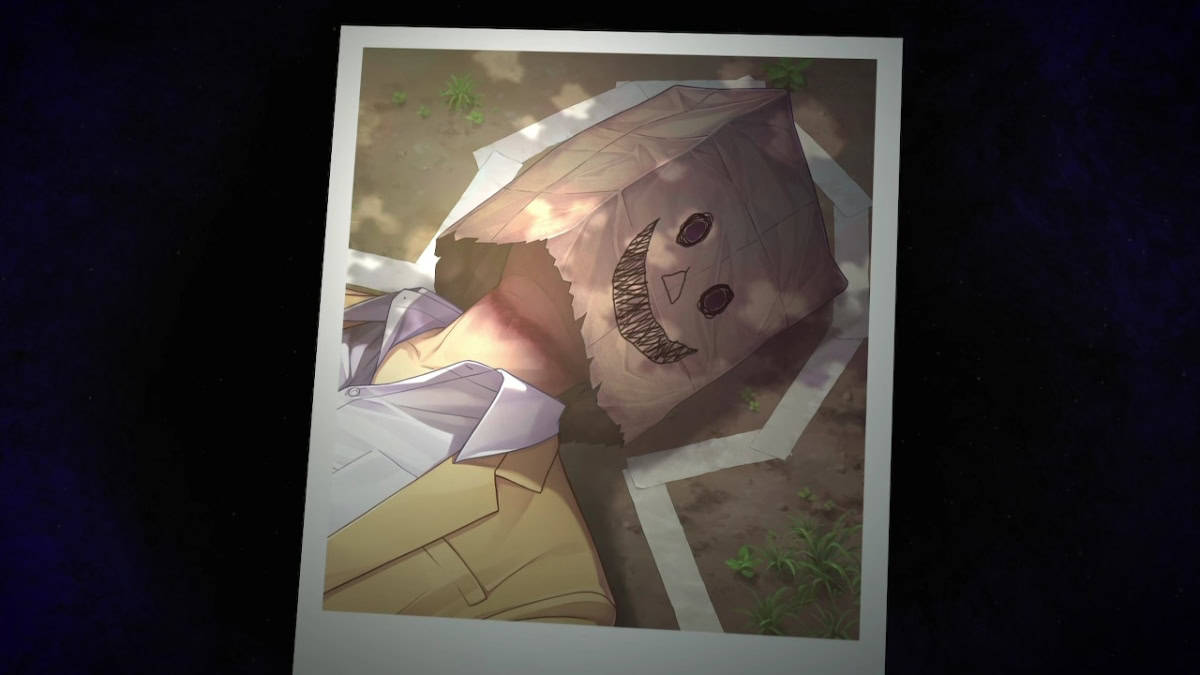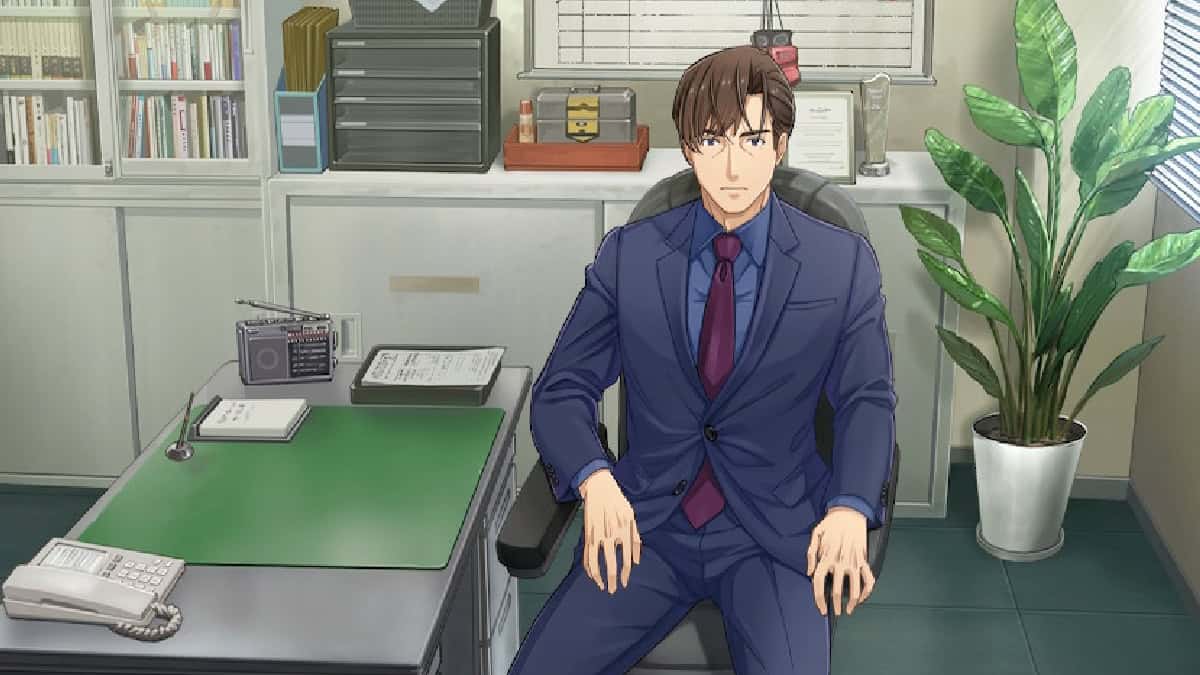Skip To...
Nintendo has left family-friendly games to go into a more mature, dark story that is unsuitable for all audiences. No, I’m not just talking about the ratings, but Emio – The Smiling Man: Famicom Detective Club touches on violent and crude themes that need a trigger warning before playing it. However, if you decide to embark on this story full of mystery, intrigue, and many unknowns, I assure you it will be worth it.
The first Famicom Detective Club game, The Missing Heir, was released in 1988, while the second, The Girl Who Stands Behind, was released in 1989 and is a prequel. So, the Famicom Detective Club already has a long trajectory. Initially, it had two titles from the 80s, and then, the BS Tantei Club: Yuki ni Kieta Kako for Satellaview in 1997. Although it also has several remakes for 3DS, Wii, and Switch in 2021. However, Emio – The Smiling Man is its first release after 35 years. Trust me, if you thought the series touched on shocking topics before, you haven’t seen anything.
Don’t Trust Anybody, Not Even Your Shadow
The first two games narrate the lives of Utsugi, Ayumi, and “The Protagonist” and how they end up working at Utsugi Detective Agency. These are the same characters who work as detectives in Emio—The Smiling Man, but here, the focus is more on the case and not so much on their personal issues. The workers of this agency already have their relationships and personalities well defined, so one of the challenges is to make that connection with the characters involved in this new case. Still, even as someone who is not extremely familiar with the series, I never felt out of place when meeting the cast.

Emio – The Smiling Man begins with a call from the local police chief detective, Kamada, for Utsugi and his assistants to help solve a strange case. Utsugi and “The Protagonist” go to the crime scene to talk to Kamada and corroborate the victim’s peculiar state. Right here, the players will meet the police detectives assigned to this same case, Kuze and Kamihara. Finally, you see that the victim is a male teenager who has signs of having been choked in a remote area. The strangest fact is that someone covered the teenager’s head with a paper bag with a disturbing smiley face drawn on it.

From here, I cannot tell you more about the mystery you must unravel. However, this unusual case is about to get complicated, and you cannot trust anyone. The police will block your way because you are not part of the same group, the main suspect is an urban legend, and only you can open your way to the truth.
On the other hand, I can tell you that, despite the visual novel-ish presentation of Emio, the pacing is amazing. There wasn’t a moment when I felt like I was feeling burned out or distracted. Even with the walls of text and a few questionable gameplay choices, the story hooks you in every chapter and crescendos into a grand finale.
If You Dont Step Forward, You’re Always in the Same Place

The gameplay is quite simple, generally relying on a single menu with several default options, such as calling or engaging with certain characters or asking questions and listening to what they have to say. The more information you get, the more options become available, such as allowing the character to think about what transpired and open a notebook to recall certain information.
Furthermore, certain options such as ‘Look/Examine’ were used more when you arrived in a new environment or encountered a character. When the interview got stuck on several occasions, trying to examine a character or something in the scene’s background was very helpful. It all encourages the player to think outside of the box and exhaust every option they have to get the most details for the investigation.

However, despite being a very straightforward gameplay and having clues with orange letters, your investigation will suffer from dead ends in some scenes. In one moment, a character asked me to “Butter me up,” and no matter how many times I used ‘Ask/Listen,’ it only worked until I tried ‘Call/Engage’ in my desperation. While I know the game appeals to the “investigative” side and wants us to turn over every stone, it can get frustrating at times.
I mentioned that sometimes, when you can’t get an answer, examining a character is helpful, but you have to be very precise about what you select because there is not much distinction. For example, in one scene, I selected ‘Examine’ and had the option to select Mr. Todoroki as a whole, but after several minutes, I just went ahead when I clicked directly on his face. Also, sometimes, these actions don’t make sense. In the last chapters, I had to talk to a character more than ten times before something happened, and the game never did anything to point me in that direction.
Overall, Emio – The Smiling Man: Famicom Detective Club – Opening a Cold Case‘s gameplay is great, and it captures that detective feeling perfectly. Even if I have a few complaints about the design choices, it never stopped me from enjoying all the chapters. On the contrary, once I figured something out, it ramped up and bombarded me with clues that often left me with more questions than answers. Ultimately, that’s what I believe is the true feeling of a detective game, and Emio knocked it out of the park in this sense.
Are You Willing To Keep Pushing Forward?

I have already mentioned that this case is not for everyone, and this franchise often touches on sensitive issues. The initial warning remains, but there is another unique feature in Emio. Without making any spoilers, when I finished the game, I was left with several unknowns and points that didn’t seem entirely logical to me. I even felt something vital was missing in the story, leaving me with a little disappointed sensation.
I thought that until Utsugi’s voice stopped this train of thought, the very same chief of private detectives was talking to me, breaking the fourth wall in a “post-credits scene.” Utsugi, as if he had read my mind, announced that there were indeed several plot holes, warned me again that this file contained complicated issues, and asked if I wanted to continue searching for the truth.
Many will probably appreciate this second warning, and others, like me, will venture out to satisfy their curiosity. It is excellent that the Famicom Detective Club team thinks of the players’ mental health this way. However, I was thrilled to get to the bottom of this killer mystery masterpiece.
Keep The True Crime Going

I’ve spent a significant amount of hours watching True Crime and Law & Order: Special Victims Unit, as anyone with a comfort show tends to do. So I couldn’t help but feel like Olivia Benson every time I had to talk to a witness. Unfortunately, in Emio – The Smiling Man, you can’t play as the bad cop and beat up any suspect like Stabler.
However, this game has a wonderful story with a plot twist that I didn’t see coming, and despite the strange gameplay, it never stains the outstanding story full of intrigue. For all those fans of police and forensic documentaries, Emio – The Smiling Man: Famicom Detective Club is a more interactive way to satisfy your fantasy of being a cop and, frankly, one of the best videogame stories I’ve experienced this year.
Emio – The Smiling Man: Famicom Detective Club (Nintendo Switch Reviewed)
Emio – The Smiling Man: Famicom Detective Club is a superb detective game and a proper comeback to a beloved Nintendo series. While some gameplay decisions are a bit confusing, they never dampen the excitement. If you're a fan of sleuthing games and intriguing plots, Emio offers that and much more.
Pros
- Amazing and engaging story
- Immersive detective gameplay
- Recaptures the ambience and style of the original games
Cons
- Some indications need to be clarified







